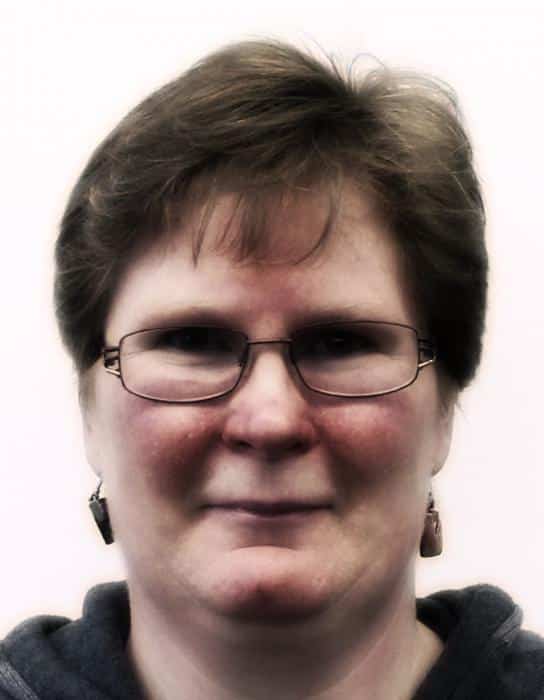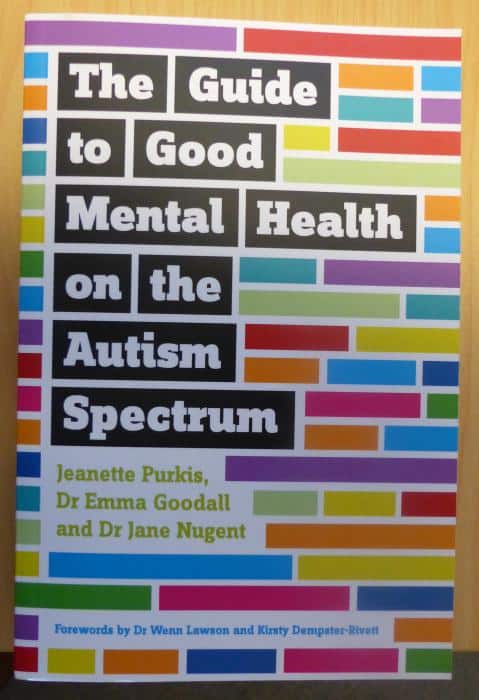A new book examines the difficulties that people on the autism spectrum encounter when they also experience mental illness.
The Guide to Good Mental Health on the Autism Spectrum looks at common mental health issues and gives guidance on treatment options, as well as strategies to improve and maintain mental wellness.
The inclusion of personal stories and mentoring advice from a lived experience perspective makes this book a useful resource for people on the spectrum, their families and friends, and health professionals alike.

Dr Emma Goodall
Co-author Dr Emma Goodall explains why the book was written and who will find it most useful.
How did the Guide come about?
Jeanette Purkis had wanted to write this book for a long time and I suggested that Jane Nugent be involved. Jane is able to give clinical perspectives to clinicians, and help people on the spectrum and their families and carers to understand these perspectives. She’s also really good at conveying pyschopharmacology information. I asked Jeanette if I could work with them adding some extra bits along the way to link Jane and Jeanette’s sections together.
Who are you most hoping will pick up the book and read it cover to cover?
Clinicians and adults on the spectrum – both of them need to understand how mental health and autism intersect and how the communication style of autistic people can complicate things and how to manage that.
How did the collaboration process work?
It was an amazing collaboration. Jane did the clinical sections, Jeanette the peer mentoring and I did most of the other bits. It is great to have lived experience, clinical and support services – experiences all represented by the authors. We can reach a wider audience and ensure that all those people gain an understanding of the issues and possible strategies for individuals on the spectrum struggling with their mental health.
The section on the therapeutic benefits of pet ownership was very interesting – do you have a pet yourself?
Jane and I have a large, long-haired German shepherd called Rocky. When I am distressed, he comes over for a check and a quick pet and then lies down close by – but not touching – which is perfect for me. Jeanette has a cat, Mr Kitty, who adopted her. We are all animal lovers and find interacting with our pets very therapeutic as they are so much easier to understand than people!
What other resources would you like to see for people on the spectrum who are also living with mental health issues?

I have been working on developing some tools for this using interoceptive skill teaching. Interoception is the awareness of internal biological signals — such as the heart rate, breathing and temperature — that tell us what we are feeling. However, if we don’t recognise or understand these signals, we can end up in fight/flight/freeze situations with no warning. This can be problematic for us as autistics. People on the spectrum often need to learn how to recognise these internal body signals so they can self-regulate before their anxiety escalates, and one of the most effective ways of learning new skills is to be explicitly taught them.
What other advice would you give to people on the spectrum who are also struggling with their mental wellness?
We feel strongly that people can struggle at times, but access to good information can help on the journey towards living well. Mindfulness can help people to live in the moment and break that negative, broken-record thinking that so many of us on the spectrum experience on a daily basis. Negative thinking makes it much harder to live well and be content. We need to cherish ourselves and be kind to ourselves, even when life is tough.
About the book’s authors:
Jeanette Purkis has lived experience of autism and mental illness and is also the author of two books looking at aspects of autism. She works full time in the Australian Public Service.
Dr Emma Goodall has Asperger’s syndrome and has professional experience of mental health services. Emma is a senior autism advisor in South Australia and an executive committee member of the Australian Society for Autism Research.
Dr Jane Nugent is a psychiatric career medical officer with general practitioner training. Jane has been involved in pharmacology teaching for a variety of New Zealand and Australian institutions since 1997.
This article was first published in Altogether Autism Journal Issue 3, September 2016 read the latest edition


